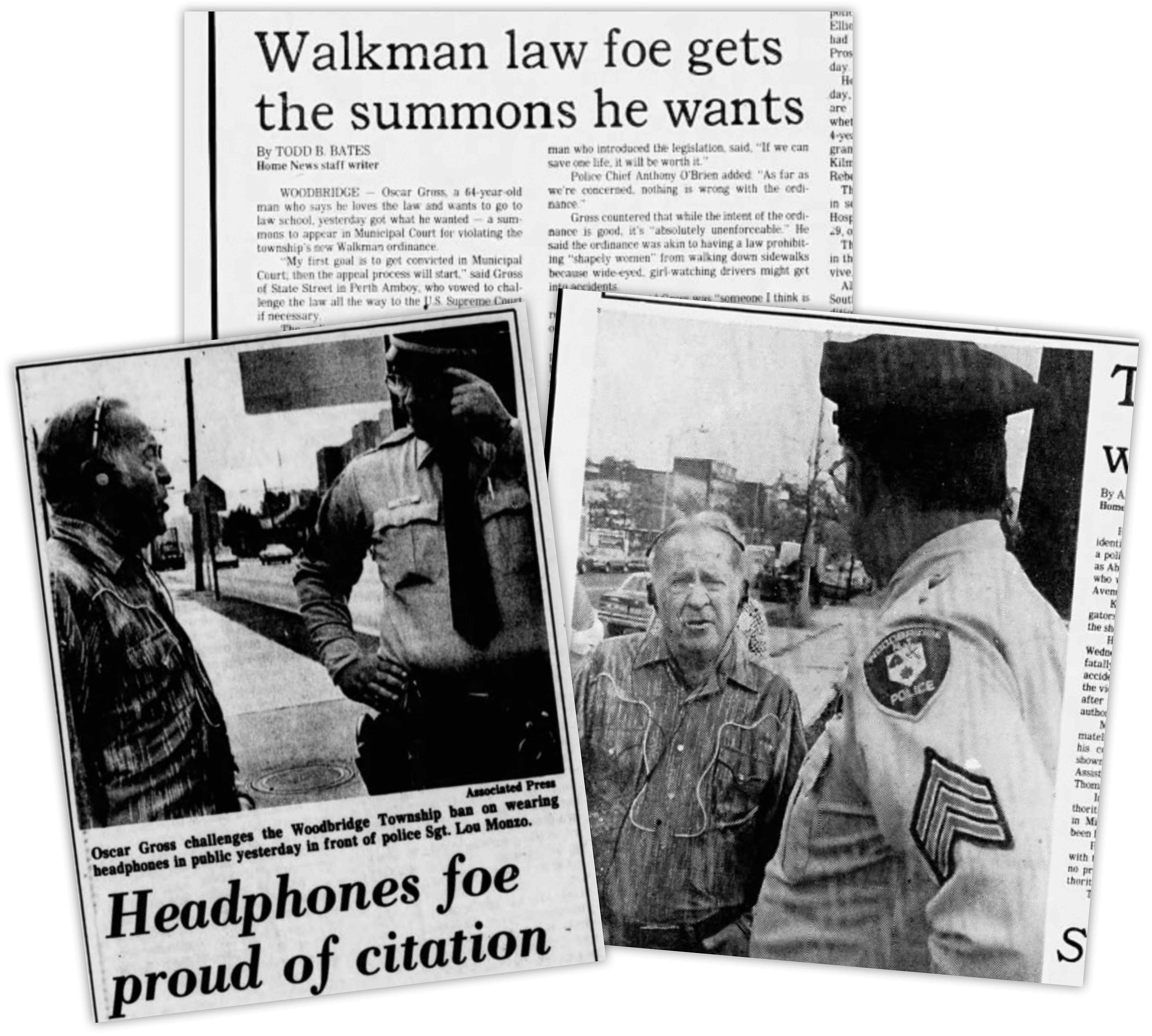When the Walkman was Banned
Once headphones were controversial, heavily regulated wearable tech
Surrendering an entire sensory input to wearable technology has always elicited strong responses: from Google Glass, to Oculus Rift and most recently Apple Vision Pro.
How silly. How isolating! How dystopian!? Right?
Well… it turns out most of us have already surrendered a sensory input to wearable technology: headphones. We don them in public without shame or ridicule, but it wasn’t always this way…
In the 1980s Sony’s Walkman™ was as peculiar and controversial as more recent vision based headsets and elicited similarly strong responses. Walkman headphones were so light, they could be worn comfortably on your head and around your neck.
As the device began to infiltrate public life, the reactions it provoked ranged from ridicule to scorn. People suddenly had the power to augment their reality and partially escape the one we all share, what did it mean?
Hand-ringing neo-puritan public intellectuals would lead the conversation and weave a dystopian narrative, some said it was a sign of a continued rise of Reagan and Thatcher style individualism.
Other takes were amusingly summed up in a 1999 Reason article: Cultural critic Allan Bloom deemed the Walkman "a nonstop... masturbational fantasy." Neo-Luddite John Zerzan saw the Walkman as part of a modern trend that encouraged a "protective sort of withdrawal from social connections" and Thomas Lipscomb, chief of the Center for the Digital Future, equated it with the euphoric drug "soma," from Huxley's Brave New World, creating, as he put it, "an airtight bubble of sound" that was nothing but a "sensory depressant."
The Walkman, critics claimed, was more than just music to one's ears; it was a tool of societal disconnect and intellectual stunting. A danger on the roads, an enemy to learning and a threat to health.
PROHIBITION
Numerous states across the US - unnerved by the rise of the Walkman - swiftly put into effect or proposed restrictions, many related to use while driving or cycling. Among them were statutes in California, Florida, Georgia, , Minnesota, Pennsylvania, Virginia, and Washington.
The New Jersey township of Woodbridge went a step further, forbidding not just driving or biking, but even crossing the street while wearing Walkman headphones. The price for breaking this prohibition? A potential two-week stay in jail and a fine. The law made national and international news, including the BBC who got reactions on the street:
The day the law was put into effect - Oscar Gross - a retiree from a neighboring town, was spurred into action. Seething with indignation, he approached Police Sergeant Lou Monzo, purposefully donned his headphones, and crossed the street.
The outcome of this small act of civil disobedience? Gross became the first person to receive a citation for wearing headphones (even though they weren’t plugged into anything.) Undeterred, he stated in an interview, "I’m prepared to go to jail for 15 days just to prove a point." He’d end up being interviewed on national TV shows. However, to his disappointment, Gross was not sent to jail. After the judge imposed a $50 fine, which was later suspended, a frustrated Gross said to a journalist: "He didn't even give me the opportunity to say that I was willing to serve time in jail."
Oscar Gross’s son said he was preparing to take the case all the way to the supreme court, but backed out after someone was killed crossing the street while wearing headphones. The kind of tragic anecdote that is the inevitable and unavoidable price of freedom.
We recommend:









Actually, many of these issues are issues and became increasingly apparent with things like the ipod. But tech bros rules the world. love the technocracy or you have a problem . The new religion.
Weren't the critics right, then? Didn't we get isolated from each other when everyone consumes their own entertainment from a small personal box?